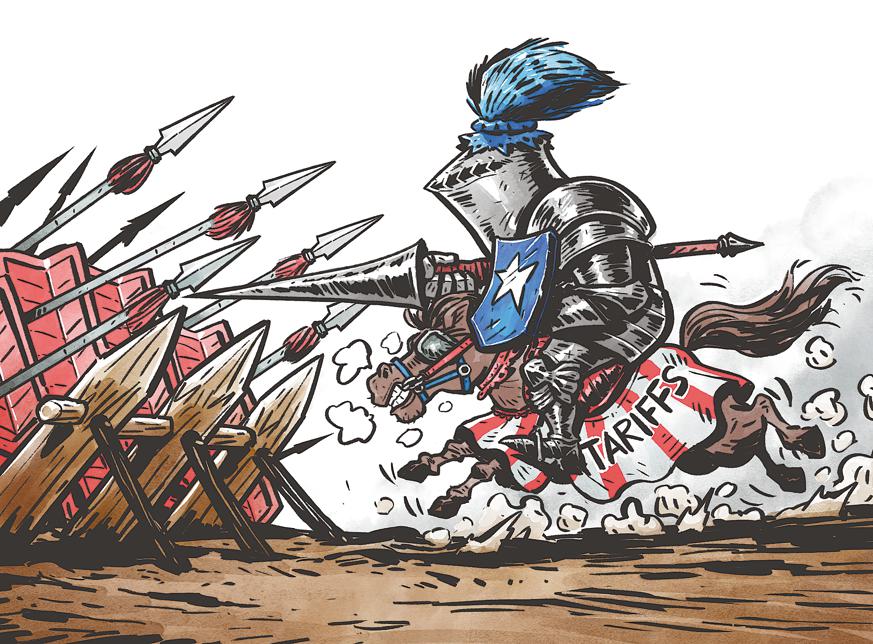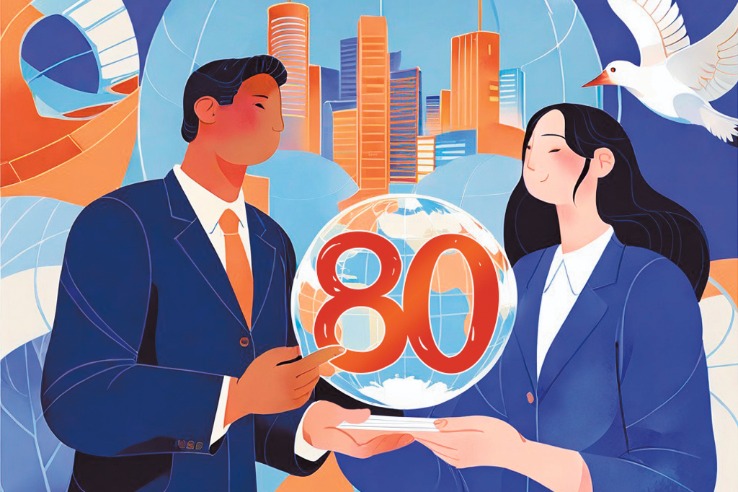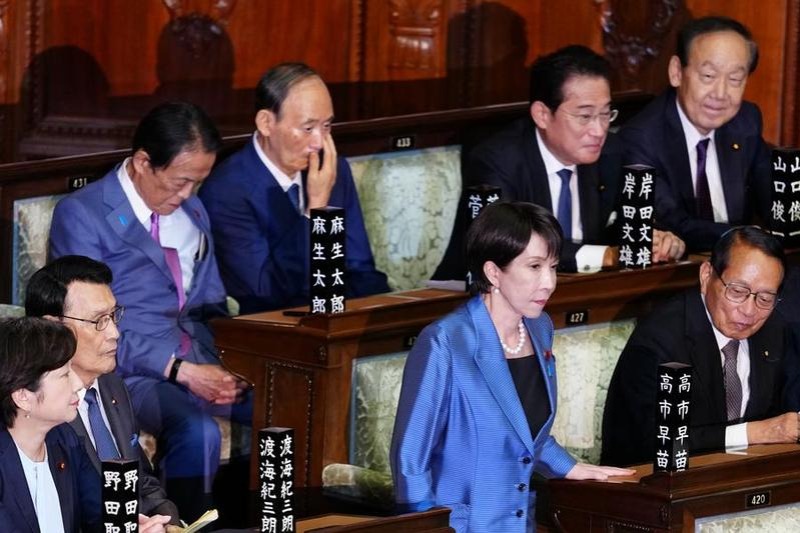Evidence indicates tariffs 'unsustainable'


China's long history means there have been no shortage of lessons learned from experience, and there is a saying to the effect that those who act unjustly for a long time will surely bring about their own downfall.
It seems that this is a lesson that the current US administration is being schooled in.
Realizing that it would be foolish for it to deny that its tariff policy is adding to the hardships of ordinary people in the United States, the administration started claiming that China was feeling the pain more, shortly after it was reported that Americans had given the US president the worst approval rating of any US leader in the past 80 years during their first 100 days in office.
The administration is also well aware that it would be foolish to deny that its tariff policy is triggering a recession in the United States. The latest data released by the US Department of Commerce on Wednesday showed that the nation's GDP shrank by 0.3 percent quarter-on-quarter in the first quarter, a sharp drop from the 2.4 percent quarter-on-quarter growth in the fourth quarter of 2024.
The country's economic performance is below market expectations, evidence that the uncertainty caused by the US government continues to dampen corporate and consumer confidence. This is supported by the findings of an ABC News/Washington Post/Ipsos poll last week, in which 73 percent of respondents said the economy is in bad shape, 53 percent said it's gotten worse since the president took office and 41 percent said their own finances have worsened. Sixty-four percent of those polled said they disapprove of the administration's tariff policy.
The US administration's abrupt switch from bragging about the "endless wins" its tariff policy has brought to exaggerating other countries' suffering to prove its tariff policy is working represents a big change in its messaging. But it is still a lot of thunder without rain. It is just trying to reassure a nervous country that its tariffs will not provoke a recession.
Knowing that there are those that will not swallow its line that things may be bad for the US but they are worse for China — given that the Chinese economy has once again demonstrated its remarkable resilience, growing 5.4 percent in the first quarter year-on-year — the administration has put forward its Democratic predecessor as its nominated fall guy. After the stock market fell again on Wednesday in response to data reported by the US Commerce Department, the US president claimed in a social media post, "Our Country will boom, but we have to get rid of the Biden 'Overhang.' This will take a while, has NOTHING TO DO WITH TARIFFS".
Yet quite clearly everyone knows it has everything to do with tariffs. The domestic impact and the mounting pressure at home, have prompted the administration to make overtures to China to start talks, having previously sought to create the impression that negotiations were already underway.
The Chinese Ministry of Commerce acknowledged on Friday that senior US officials have reached out recently "through relevant parties multiple times", hoping to start negotiations with China on tariffs, and that these overtures are currently being assessed. But it also reaffirmed that China's position hasn't changed: It is open to talks, but the US needs to show its sincerity by revoking its punitive tariffs on China.
There is a Chinese saying that untying the bell requires the one who tied it, meaning it is up to the person who created the problem to resolve it. The US started the tariff war, and it is the one that can end it. But to do so, it should discard any illusion it may have that China will give in to the US' blackmail and coercion. Saying one thing and doing another will be to no avail. US Treasury Secretary Scott Bessent effectively acknowledged this by saying that the first priority is to de-escalate the situation, and then over time, start focusing on a larger trade deal.
The way to de-escalate the situation is for the US to start showing that it understands the necessity of matching its words with deeds. Even hearing something 100 times is not as good as seeing it once.


































